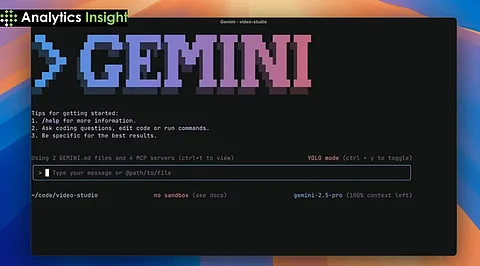The digital world was recently rocked by news of a significant security flaw discovered within Gemini CLI, an open-source coding tool favored by software developers. This critical vulnerability allowed malicious actors to gain unauthorized access to sensitive user information, raising alarms across the tech community and prompting immediate concerns over potential illegal data breaches. The incident underscores the persistent challenges in maintaining robust cybersecurity in rapidly evolving development environments.
Researchers at Gemini identified the misuse of user data approximately 48 hours after the initial breach, initiating a rapid response to mitigate the damage. This prompt action was crucial in containing the spread of the exploit, which originated from a sophisticated data theft operation. The core of the attack leveraged a subtle mechanism within the Gemini CLI’s ‘allow list’ feature, exploiting it to bypass intended security protocols.
The attack vector was ingeniously designed, requiring users to first add a seemingly innocuous command to their allow list. Subsequently, they were prompted to describe a specific code package created by the attackers. Critically, users remained invulnerable to data exploitation unless both these steps were explicitly completed, offering a narrow window of protection against the sophisticated Gemini CLI security flaw.
One of the most challenging aspects for users was differentiating the malicious code package from countless legitimate repositories found on platforms like NPM, GitHub, and PyPI. The code hosted on the attacker’s page was deceptively benign in appearance, making it exceptionally difficult for even experienced developers to identify the underlying malicious activity and the potential for a severe data breach.
The exploitation technique employed by the attackers is known as ‘prompt injection,’ a recognized vulnerability within large language models (LLMs). This method cunningly deceived users into granting permission for what appeared to be a harmless command. Once approved, the attackers could then modify this previously allowed command to execute their harmful code, showcasing a novel approach to exploiting developer tools.
In response to the critical Gemini CLI hack, Google swiftly confirmed that a software bug was responsible for the breach. The company promptly released an urgent update, version 0.1.14, specifically engineered to address and rectify the identified security issue. This rapid deployment of a patch highlights the commitment to user safety and the agile nature of modern software development in mitigating such serious vulnerabilities.
This incident serves as a crucial reminder for all programmers to exercise extreme caution when utilizing powerful tools like Gemini CLI and integrating code from unfamiliar or unverified sources. Thoroughly investigating the origin and integrity of any external code should become standard practice. Emphasizing proactive measures can significantly reduce exposure to future software security risks and protect against further data breaches.
Furthermore, the use of a sandboxed environment when interacting with such developer tools is highly recommended. This isolated execution space minimizes the risk of attackers exploiting sensitive data, even if a new vulnerability were to emerge. It provides an additional layer of security, creating a buffer between potentially compromised tools and critical system resources. It’s also noteworthy that other major AI coding assistants, such as OpenAI Codex, have been confirmed not to be affected by this specific bug.






Leave a Reply